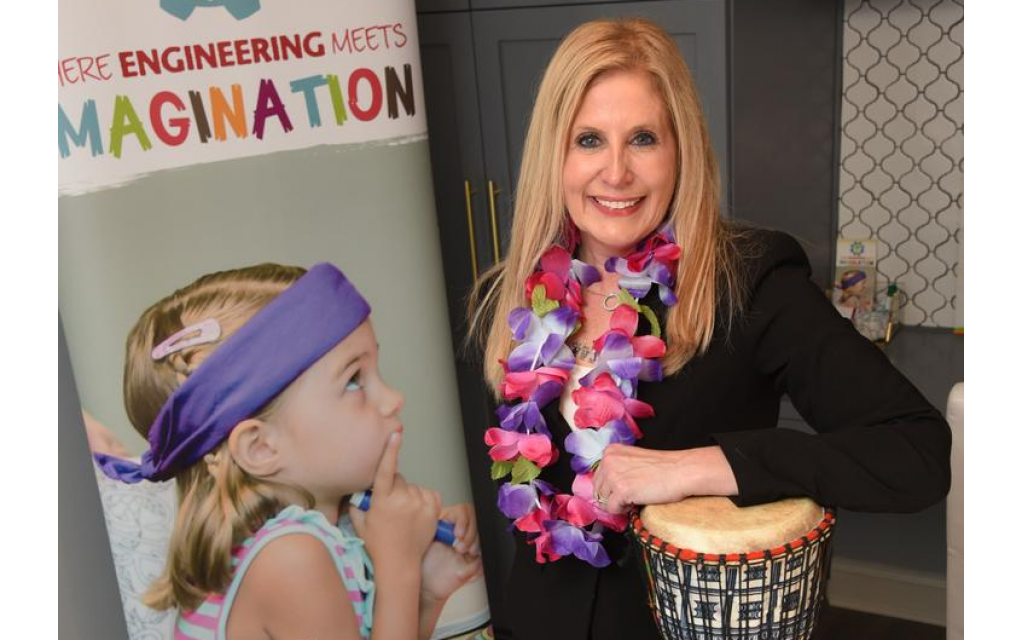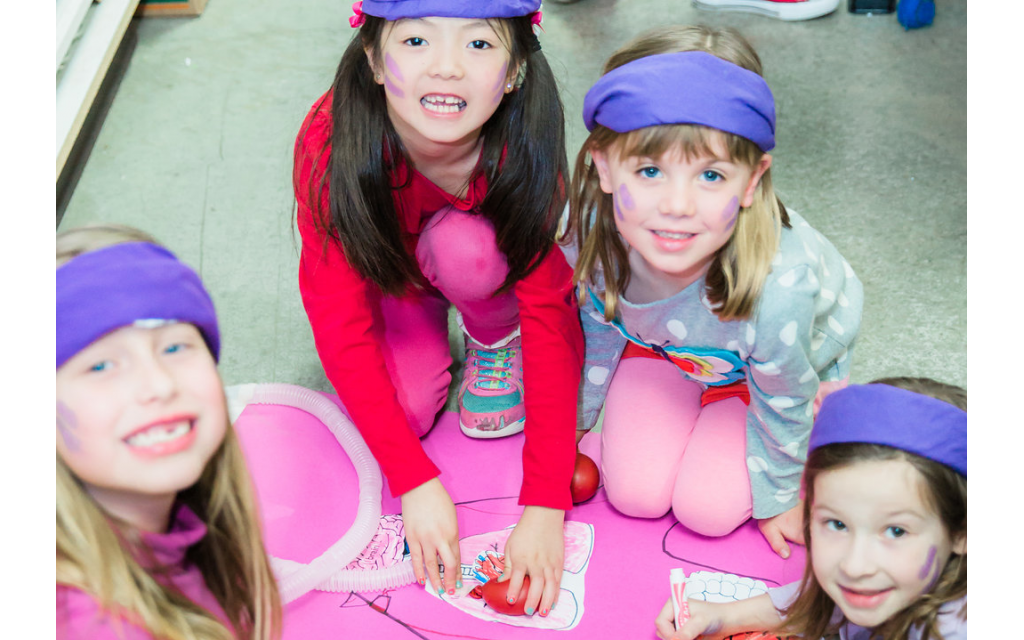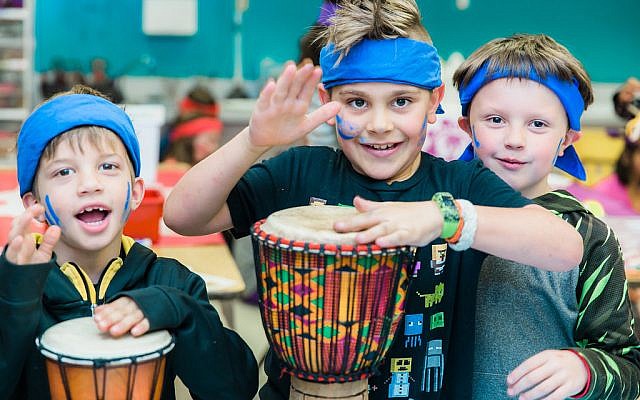Former Epstein Teacher Leads Franchise 500 Challenge Island
Challenge Island, Estroff’s Science, Technology, Engineering, Art, and Mathematics company, started in her classroom and quickly grew into an exciting new adventure.
Sharon Estroff always knew that she wanted to be a teacher. She would pretend to be in a classroom while playing make believe as a kid. When she went off to college, however, she found herself pulled in a different direction.
“I was in the clinical psychology Ph.D. program at Duke and I realized that I didn’t want to be behind a two-way mirror watching kids and looking for data,” she said. “I talked to my professor and she said, ‘You want to be a teacher. You don’t want to be a psychologist.’”
Estroff, after working at Heards Ferry Elementary, moved on to teach second and fourth grades at The Epstein School.
“I loved teaching so much and my kids were there, and it was perfect,” she said. “My favorite part of the job was the creativity and the excitement. Kids’ view of life is always so fresh.”
After she had her fourth child, however, she decided it was time to make a change.
“As much as I loved teaching, it was hard to be on all day for the kids and then to come home and try to be on for my own kids,” Estroff said. “I always felt like it was my own kids who were missing out.”
Challenge Island, Estroff’s STEAM (Science, Technology, Engineering, Art, and Mathematics) company, started in her classroom and quickly grew into an exciting new adventure for her.
“It was when ‘Survivor’ was at its peak,” she elaborated. “I thought it was a really good way to get them excited, so we would divide them into tribes, and they would have challenges and we could turn learning into a challenge.”
Once she decided she was leaving Epstein in 2013, Estroff went to the administration and told them she would still like to offer some enrichment programing at the school.

“They said, ‘Ok, that’s fine but we can’t pay you,’” she said. “I wasn’t sure that the parents were going to be interested, but they were. I would come during lunch and it was so fulfilling because I could come in and do my favorite parts of teaching, … without all the parts of teaching that were so hard.”
Challenge Island was adapted to be an after school program at Cobb County public schools East Side and Timber Ridge Elementary.
“The public schools were very test-centered,” Estroff said. “Those kids and parents were over-the-moon excited. That became a huge part of the business.”
Franchising was the next step forward, and Estroff explained that her lack of business acumen became an issue.
“Investors came and liked the idea and they ended up acquiring it from me,” she said. “As a teacher, I was like, ‘oh my G-d, this is such a great deal — I’ve made it,’ but in hindsight, it was a horrible deal.”
The new management’s vision didn’t match Estroff’s and around six months in, she realized the mistake she’d made.
“They didn’t want me around and the franchisees needed me,” Estroff said.
Eventually, at the end of 2015, the situation presented itself for Estroff to buy back Challenge Island and she jumped at the opportunity.
“Everything was mine again, and I had no idea what to do,” she said. “I was a CEO and I couldn’t believe it. I went with my gut and did what I thought needed to happen. We needed to stabilize the franchisees that we had, and they started soaring.”
Since then, Challenge Island has become one of the fastest growing education companies in the world, appearing on Entrepreneur magazine’s Franchise 500 list in 2018 and 2019. It has nearly 100 franchises in the U.S. and abroad.

Estroff makes it very clear that her experience as an educator still plays an important role in defining Challenge Island.
“The franchise world can often be very cold and business-focused, and we try to bring the heart and soul back into it,” she said. “Most of our franchisees are women. Some are former teachers, but others come from corporate backgrounds, but we all feel very strongly about what we’re doing.”
At the core of Challenge Island is the focus on STEAM, adding art to the common STEM acronym.
“STEM is very left-brain focused. It’s very mathematical and analytical,” Estroff said. “The arts are that whole right side of your brain. … Combining both of those you use the whole brain, but also you’re making STEM more accessible.”
In particular, Estroff points to inroads made with young girls, who statistically are more likely to shy away from STEM.
“When you add this creative element, that engages girls and allows younger kids to take part as well,” she said. “We have Challenge Island Girl Scout badges because they said we’re the most girl-friendly STEM.”
The model of Challenge Island is rooted in allowing children to figure out problems for themselves. Each challenge is themed around a kind of lesson, like fantastic fiction, or mythology.
“There’s the Poseidon challenge where they’re making boats,” she said. “We’re integrating STEM with language arts and history.”
There are rarely simple answers and concrete directions for what the challenge demands. Instead, Estroff’s focus is on allowing the kids to develop their own answers and learn creative problem-solving skills.
“The only power they’re allowed to use is their own imagination,” she said. “They have to figure it out. There’s nothing prescriptive about our program. There’s a million different ways to do this and they get to create their own blueprint.”




comments